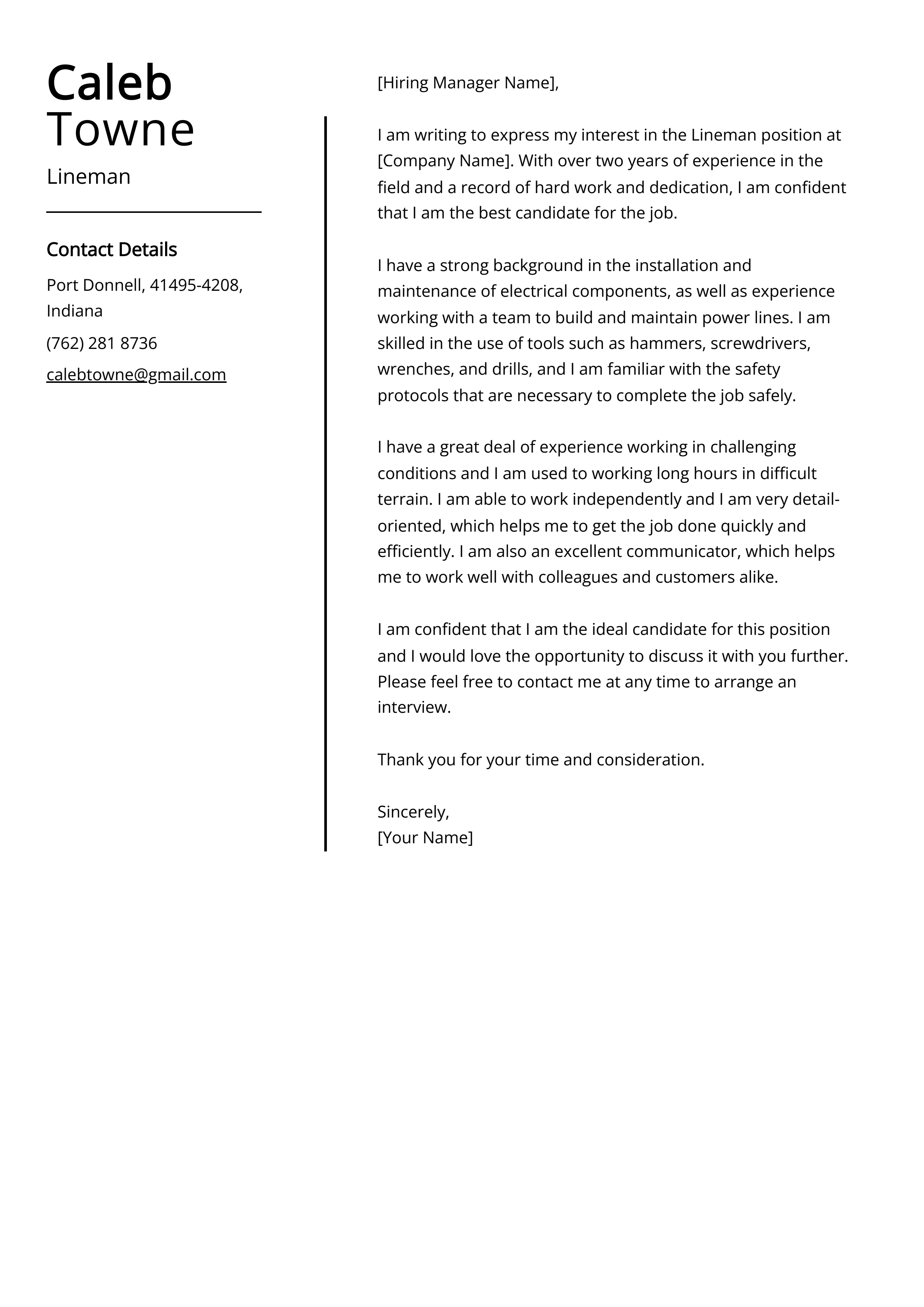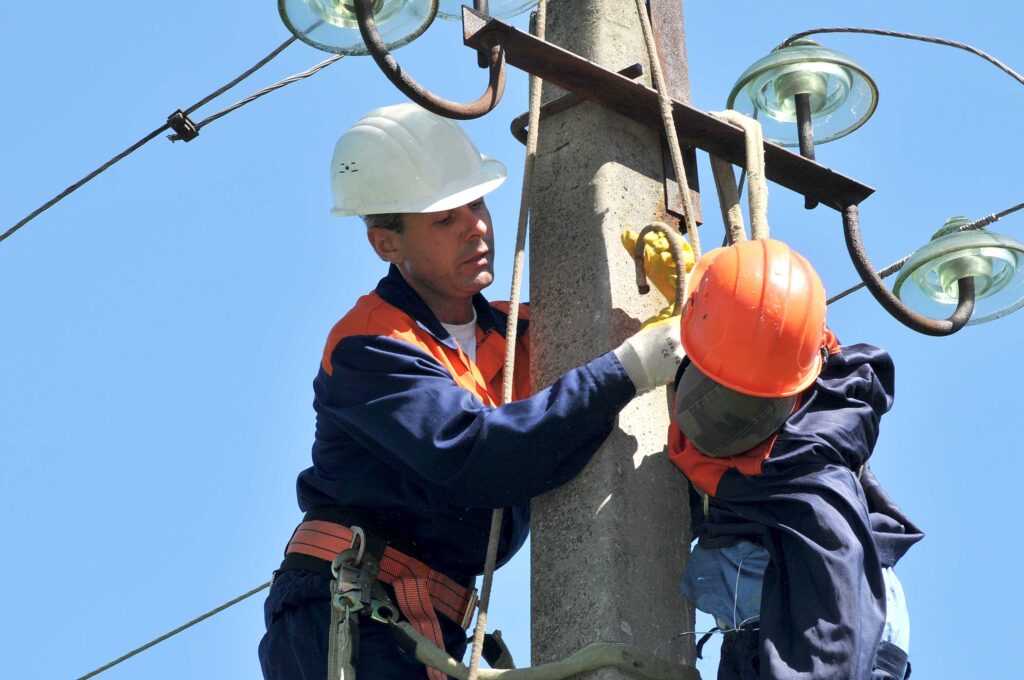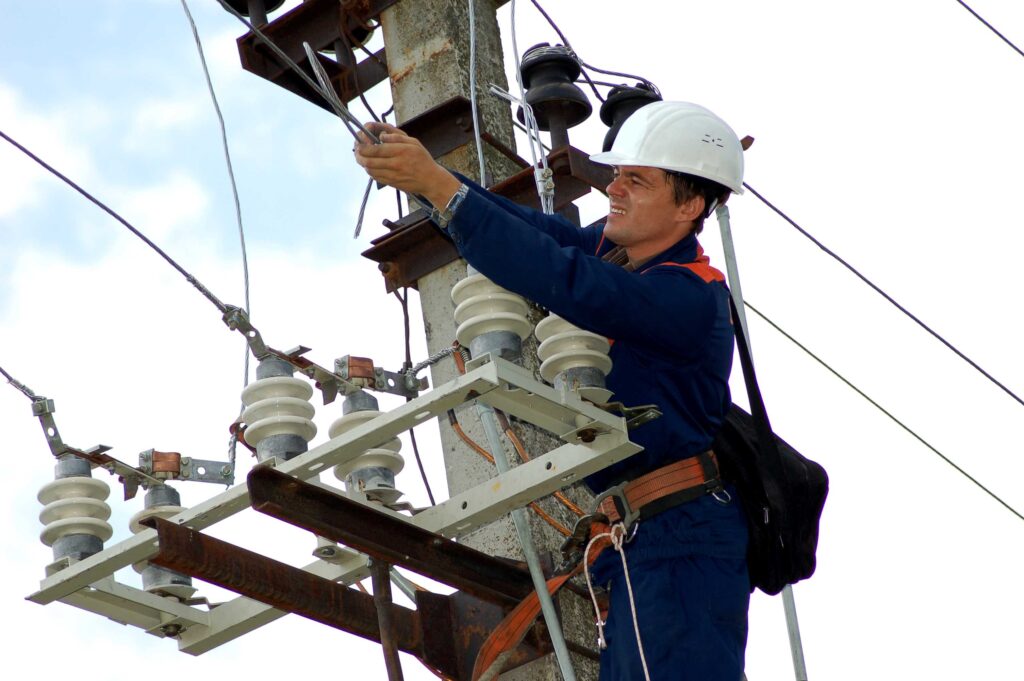How long is lineman school? Lineman training typically lasts 10 to 15 weeks, while degree programs can take up to a year. Learn more about the duration and training process!
Embarking on a career as a lineman involves a specialized training program where aspiring lineworkers gain the necessary skills and knowledge to build and maintain electrical power systems. Through this rigorous program, students learn about electrical theory, pole climbing, equipment operation, and safety procedures.
They emerge as trained professionals ready to tackle the physical and technical demands of the job. With an emphasis on real-world application, lineman schools offer a blend of classroom instruction and hands-on experience, preparing graduates for immediate employment in the utility industry. This foundational education is crucial for those looking to secure a position in this vital and rewarding field.

Credit: resumaker.ai
What Is A Lineman School?
Lineman school is a specialized trade school. It trains individuals in the skills needed to build and maintain electrical power systems. Linemen also work with telecommunications networks. They are the heroes during storms, working tirelessly to restore power.
Description Of Lineman School
At a lineman school, students immerse themselves in a hands-on learning environment. Schools combine classroom instruction with extensive field training. Facilities often feature real-world simulations. This is to prepare students for the challenges they’ll face in the field. Safety is a top priority. Schools ensure that graduates can approach high-voltage situations with confidence and caution.

What Do You Learn In A Lineman School?
Training at a lineman school is comprehensive and covers a broad set of skills:
- Electrical theory – Understanding the basics of electricity and power distribution.
- Climbing techniques – Learning to scale utility poles safely and efficiently.
- Equipment operation – Mastering the tools and vehicles used in the trade.
- Installation and maintenance procedures – Detailed learning about power grid components.
- Risk management – Focusing on safety protocols to mitigate hazards.
- Emergency response – Preparing to handle outages and disasters with swift action.
Communication and teamwork skills are also emphasized. They form an integral part of the job. Upon completion, graduates are prepared to enter the workforce with a valuable set of skills.
Requirements To Get Into Lineman School
Gearing up for a future as a lineman? Before you climb to new heights, let’s explore the essential prerequisites for lineman school.
Minimum Education Requirements
- High school diploma or GED – A cornerstone requirement.
- Driver’s license – Must vouch for your mobility and independence.
- Basic math skills – Key for understanding electrical concepts.
While some programs might vary, these set a strong foundation.
Physical Requirements
| Physical Ability | Importance |
|---|---|
| Strength and stamina | Tasks are often arduous and prolonged. |
| Comfort with heights | Linemen work elevated on poles and towers. |
| Good vision and hearing | Critical for safety and precision on the job. |
| Agility and dexterity | For handling tools and equipment deftly. |
Prospective linemen must show they can meet the job’s physical demands.
Length Of Lineman School
Embarking on a career as a lineman demands specialized training. Lineman schools vary in length. Most programs run several months to a couple of years. The length often depends on the level of expertise and certification desired.
Duration Of The Program
Standard lineman programs typically last between 10 to 15 weeks. Some schools offer extended programs that can run up to two years. These often integrate apprenticeships for hands-on experience.
- Certificate Programs: 10-15 weeks
- Diploma Programs: 1 year
- Associate Degrees: 2 years
Full-time Or Part-time Options
Students may choose between full-time or part-time lineman programs. Full-time students can complete their training more quickly. Part-time students may take longer but can balance schooling with work or other responsibilities.
| Program Type | Completion Time |
|---|---|
| Full-time | Fastest |
| Part-time | Extended Duration |
Accelerated Options
Some schools offer accelerated lineman programs. These are designed to fast-track students into the field. They cover the same material but in a shorter time frame. Speedy entry into the workforce is the main benefit.
- Intense curriculum
- Focused training sessions
- Less time than standard programs
Cost Of Lineman School
Embarking on a journey to become a lineman involves education and training. The cost of lineman school can vary. It covers tuition, equipment, and additional expenses. Understanding these costs helps prepare for your future career.
Tuition And Fees
Lineman school tuition forms the bulk of your educational expenses. Fees often include textbooks, lab materials, and other essential learning tools. The table below breaks down the typical tuition and fees:
| Item | Cost |
|---|---|
| Tuition | $5,000 – $15,000 |
| Books and Supplies | $500 – $2,000 |
| Lab Fees | $300 – $1,000 |
Additional Expenses
Apart from tuition, you’ll have other costs. Examples include:
- Personal Protective Equipment (PPE): Safety is crucial.
- Tools and Gear: Linemen need specialized tools.
- Transport: Getting to and from school may incur costs.
- Housing: If not local, accommodation is a factor.
Financial Aid Options
Various financial aid forms exist to help fund lineman training. Below is a list of options:
- Scholarships: Search for lineman-specific scholarships.
- Grants: Federal and state grants don’t require repayment.
- Student Loans: Government or private loans can fill gaps.
- Work-Study Programs: Earn while learning the trade.
Each school offers unique aid packages. Reach out to financial aid offices for personalized information.
Curriculum Of Lineman School
Embarking on a career as an electrical lineman means undergoing a rigorous and comprehensive educational path. Lineman schools offer a blend of theory and practice to ensure upcoming lineman are ready for the challenges of the job.
Overview Of Courses
The curriculum in lineman schools covers a wide range of topics to fully prepare students for their future roles. Students delve into electrical theory, power systems, and the fundamentals of electrical circuits. Additionally, they learn about the national electrical code and utility standards.
- Electrical Theory
- Power System Operations
- Circuit Fundamentals
- National Electrical Code
- Utility Standards and Regulations
Hands-on Training
Lineman schools emphasize practical experience. Students gain hands-on experience with real-world equipment and scenarios. This training includes climbing poles, working on transformers, and practicing line installation and maintenance tasks.
Safety Training
Safety is paramount in the life of a lineman, and it’s thoroughly ingrained in the curriculum. Classes focus on first aid, CPR, proper use of protective gear, and safe handling of hazardous situations. This ensures that future linemen can work safely and efficiently.
- First Aid and CPR
- Use of Personal Protective Equipment
- Hazard Recognition and Mitigation
Certifications Received
| Certification | Description |
|---|---|
| Commercial Driver’s License (CDL) | Essential for operating heavy machinery. |
| OSHA Safety Certifications | Crucial for workplace safety adherence. |
| Certified Lineman Technician (CLT) | Serves as proof of comprehensive training. |
Graduates leave lineman school with recognized certifications, proving their competence and readiness to start their careers in the electrical power industry.
Job Opportunities After Lineman School
Securing a position as a lineman often starts with specialized training at lineman school. After graduation, a multitude of job opportunities await. With critical skills in hand, graduates can embark on fulfilling careers that not only promise growth but also provide essential services to communities. Let’s uncover the variety of roles, salary prospects, and employment outlook for aspiring linemen.
Types Of Jobs Available
- Electrical Power-Line Technicians: Maintenance and repair of electricity transmission and distribution.
- Telecommunications Linemen: Installation and servicing of telecom lines.
- Substation Technicians: Ensure the performance and safety of substations.
- Traveling Linemen: Respond to emergency outages nationwide.
- Supervisor/Management Roles: Oversee projects and teams post-experience.
Salary Expectations
Linemen can expect competitive pay. Entry-level salaries start around $30,000 – $40,000 annually. With experience, that can substantially increase.
| Experience Level | Average Salary |
|---|---|
| Entry-Level | $30,000 – $40,000 |
| Mid-Level | $50,000 – $60,000 |
| Senior-Level | $70,000 and up |
Salaries can vary based on location, company, and overtime opportunities.
Employment Outlook
The demand for skilled linemen remains steady. Industry growth is projected at about 9% from 2020 to 2030.
- Clean energy initiatives fuel further job creation.
- Retirements present new openings for fresh graduates.
Overall, linemen enjoy a robust job market. Employers often seek those with hands-on training and field-ready skills. Graduates from lineman school are well-positioned to step into various roles and advance their careers as the industry evolves.
Choosing The Right Lineman School
Choosing the right lineman school is a big decision. The duration of lineman school varies, often between 10 weeks to several years with apprenticeships. With each school offering unique benefits, it’s essential to find the one that aligns with your goals and expectations. Consider key factors like accreditation, location, reputation, and job prospects after graduation.
Accreditation
Accreditation ensures quality education. It confirms a school meets industry standards. Seek out schools recognized by the Electrical Training Alliance or similar organizations. A list of accredited institutions is available on official websites.
Location
Location affects daily life and expenses. Choose a school that is easily accessible. Consider your willingness to relocate, as well as the cost of living in the area.
Reputation
A school’s reputation speaks volumes about its quality. Look for opinions from current students and graduates. High satisfaction rates usually indicate valuable training and teaching methods.
Graduation And Job Placement Rates
Graduation and job placement rates are critical indicators of success. Schools with high employment rates for their graduates typically have strong industry connections.
Conclusion And Next Steps
Now that we’ve explored the journey to becoming a lineman, it’s time to summarize and plan your actions. Having a clear understanding of the next steps can smooth your path into this rewarding career. Below, let’s look at some key considerations.

Benefits Of Lineman School
Lineman schools offer crucial training for those interested in this field. Here are some standout benefits:
- Hands-on experience: Students gain practical skills for real-world scenarios.
- Expert instructors: Learn from professionals with industry experience.
- Safety protocols: Emphasis on safety ensures you work confidently and securely.
- Job readiness: Graduates are prepared to meet employers’ needs quickly.
Deciding If Lineman School Is Right For You
Making this decision involves self-reflection and research. Consider these:
- Assess your physical fitness and comfort with heights.
- Research the demands and lifestyle of linemen.
- Talk to professionals already in the field.
- Reflect on your interest in hands-on and outdoor work.
Applying To Lineman School
Ready to apply? Follow these steps to kickstart your education:
- Gather your documents: High school diploma, driver’s license, and resume.
- Choose a program: Look for accredited schools with strong reputations.
- Complete the application: Fill out forms accurately and submit them before the deadlines.
- Prepare for interviews: Some schools might require a personal interview.
Preparing For A Career As A Lineman
With acceptance into lineman school, prepare for a fulfilling career:
- Invest in quality gear: High-grade boots and gloves are essentials.
- Study diligently: Your coursework forms the foundation of your expertise.
- Embrace physical training: A strong body supports your daily tasks.
- Seek internships: Real-world experience complements your training.
- Network: Forge connections with peers and industry insiders.
Frequently Asked Questions On How Long Is Lineman School
How Do You Become A Lineman In Texas?
To become a lineman in Texas, obtain a high school diploma or GED, then enroll in a lineman training program. Afterward, pursue an apprenticeship to gain hands-on experience, and finally, secure licensing if required by your local jurisdiction.
Is It Worth It To Be A Lineman?
Becoming a lineman can be rewarding due to competitive salaries, benefits, and opportunities for advancement. It’s a choice suited for those valuing outdoor work, physical tasks, and problem-solving. However, it requires dealing with high-risk conditions and extensive training.
How Long Is Lineman School In Texas?
Lineman school in Texas typically lasts for 15 weeks to 1 year, depending on the program and whether it’s full-time or part-time.
How Do You Become A Lineman In Tn?
To become a lineman in Tennessee, obtain a high school diploma or GED. Complete a lineman training program, such as a technical college course. Gain experience through an apprenticeship. Secure a commercial driver’s license (CDL). Finally, apply for lineman positions and pass any required certification tests.
Conclusion
Embarking on a lineman career is a journey shaped by duration and commitment. Typical lineman schools span anywhere from 10 to 15 months. This period sets the foundation for a robust and safe career handling electrical lines. Choosing the right program aligns with your goals, ensuring you’re job-ready upon graduation.
Pursue excellence; your future as a lineman awaits.
people also read

